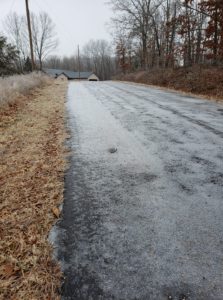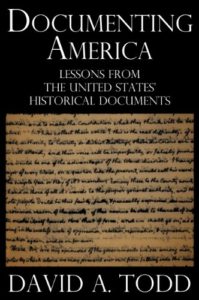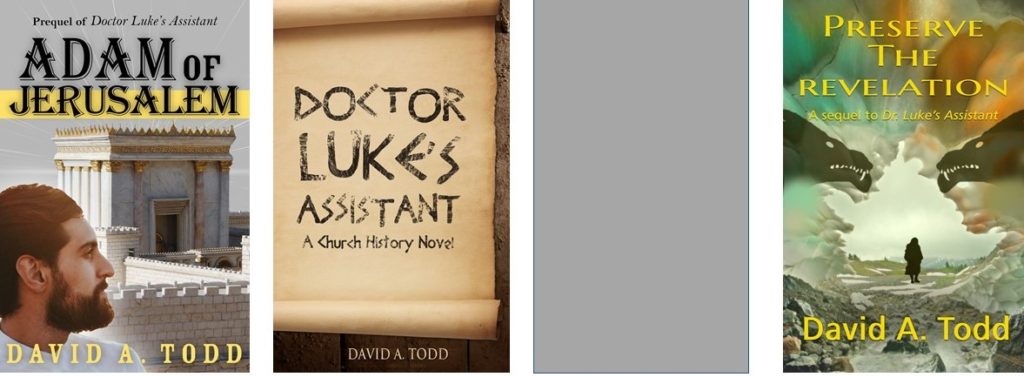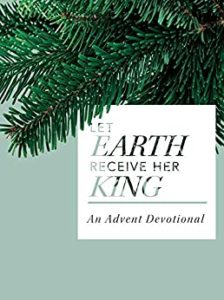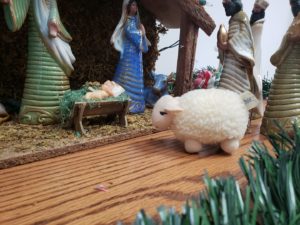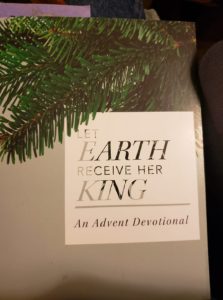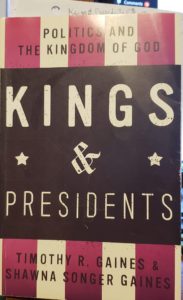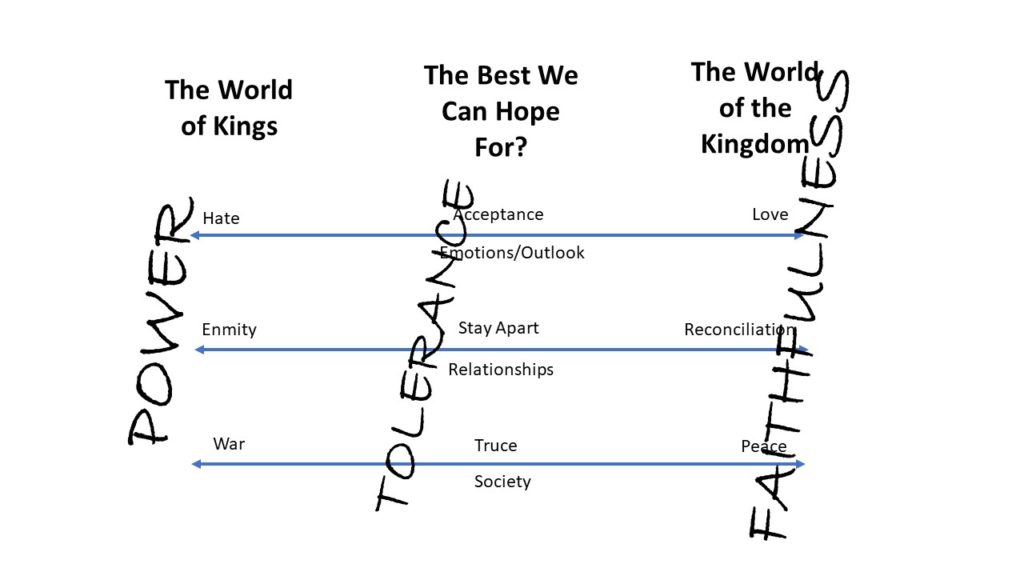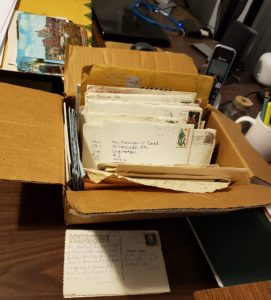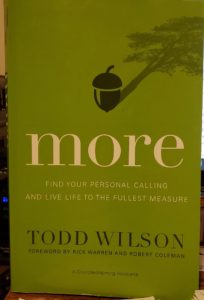In our evening reading aloud, Lynda and I are reading in two books right now. One is our denomination’s Lenten Devotional book Sacred Invitation: Lenten Devotions Inspired by The Book of Common Prayer. It’s been good, though for thirty years I never once heard celebration of Lent promoted in our church and don’t understand why it is being so now. But perhaps that’s a subject for a different post, or an essay. The book is an easy read. Daily morning and evening scripture readings (which I assume come from the Lectionary) along with a couple of pages of text and a page of questions to spark spiritual growth. The text is small, 11 point font or less—I think 10 point font.
The other is A History of the Jews by Paul Johnson. This was a book of our son’s when he was in college, for it has his name and a date from his college years written on the inside. It includes marginalia that does not appear to be his handwriting, so perhaps he got it used. In that case we are at least the third owners of it. It’s 595 pages of text, plus a lot of pages of endnotes. It is also in 10 point font, so it’s a lot of reading. We’re only on page 37 after three or four days.
Whether we finish it or not is a big question right now. I’m re-reading some of the early pages which Lynda read aloud and I was a little distracted in my listening. On page 6 I ran across this statement:
Under the influence of Hegel and his scholarly followers, Jewish and Christian revelation, as presented in the Bible, was reinterpreted as a determinist sociological development from primitive trial superstition to sophisticated urban ecclesiology.
That’s a mouthful, for sure. I know who Hegel is but know nothing about what he thought or taught, nor about the “school” that follows, or followed, him. That phrase though, “determinist sociological development”, threw me. What the heck does that mean? I looked up “determinist” and had a sort of idea of what it means: the opposite of free will. I kind of know what ecclesiology is but looked it up to be sure: the study of church doctrine is the way I would say it in layman’s terms (the definition wasn’t real clear to me). So this is saying that Hegel and the folks who follow his teachings consider the history told in the Bible moves from lack of free will to something scholarly, something sophisticated, something urban.
I’m sure I’ve got that wrong, but that’s the best I can do. Now, a couple of things come to me from that. I find those kind of hard to understand statements a couple of times on each page. I spent ten minutes or so trying to riddle this one out. If I do that on every page, we’ll never finish the book. On the other hand, do I really need to understand that to understand the history of the Jews? Do I need to know that some dude (I guess he’s a man) and his minions have a complicated idea of what Bible history is teaching, that the author is getting ready to say is not correct? Probably not.
Elsewhere in the book, we’ve been running into lots of words that need looking up to understand, two examples being adumbration and aggadic. Thirty seconds on the cell phone provides those definitions but perhaps not that much greater understanding. Which makes me think this book is not for us.
Meanwhile, in other writing work, I’m engaged to write a book on the history of our church for our 100th anniversary. That happens in July, but because of pandemic fears and some major construction adjacent to the church, the actual celebration has been pushed back to a date not yet established. For that book, I’ve been researching our charter members. I’m probably doing too much research into our charter members. But given how research way leads on to way, I’ve pulled up some interesting church history documents. I have allowed myself to go down these rabbit holes. One document I was in today, a PhD dissertation, included this statement.
The manner in which nineteenth-century advocates of holiness reconstructed the Wesleyan/holiness cultural-linguistic system emphasized an imagistic religiosity which heightened individual awareness of spiritual autonomy.
Cultural-linguistic system…imagistic religiosity? This did me in. I have no idea what the PhD is talking about. This tells me nothing about the history of the church or the particular religious movement, nor does it help me live a better life. Nor will it help any Christian minister to be a better pastor of their flock. So what is its purpose? I’d answer that question, but I don’t have a spare week of continuous study that I would have to spend to do so.
All of which tells me I should do what I just read in a different book. I should stick to my lasts and leave the scholarly documents to the scholars. Back to my the Bible itself, a devotional book, books of letters, and Agatha Christie books.
